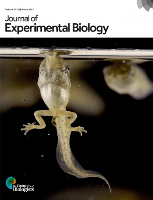
INDIAN JOURNAL OF EXPERIMENTAL BIOLOGY
Scope & Guideline
Unveiling the Mysteries of Molecular Biology
Introduction
Aims and Scopes
- Molecular and Cellular Biology:
Research focusing on cellular mechanisms, molecular interactions, and genetic studies, often using animal models, in vitro systems, and advanced imaging techniques. - Pharmacology and Toxicology:
Studies investigating the pharmacological effects of natural and synthetic compounds, including their therapeutic potentials and toxicological assessments in various biological systems. - Environmental and Ecological Biology:
Research addressing ecological interactions, environmental stressors, and their effects on biodiversity, particularly in relation to pollution and climate change. - Agricultural and Plant Sciences:
Studies exploring plant physiology, crop improvement, pest management, and the application of biotechnological approaches in agriculture. - Clinical and Translational Research:
Research translating laboratory findings into clinical applications, focusing on disease mechanisms, diagnostics, and therapeutic strategies. - Biotechnology and Bioengineering:
Innovative studies on the development and application of biotechnological processes, including microbial and enzymatic processes, for industrial and medical purposes.
Trending and Emerging
- Integrative Approaches to Disease Mechanisms:
Growing interest in the interplay between genetic, epigenetic, and environmental factors in disease development, particularly in cancer and metabolic disorders. - Nanotechnology in Medicine and Agriculture:
Increased research on the application of nanomaterials for drug delivery systems, biosensors, and agricultural enhancements, reflecting advancements in material science. - Microbiome Research:
Emerging focus on the human microbiome and its relationship with health and disease, especially in areas like gut health, immunity, and metabolic functions. - Bioprospecting for Bioactive Compounds:
An upsurge in studies aimed at discovering novel bioactive compounds from natural sources, particularly plants and marine organisms, for therapeutic use. - Sustainable Agricultural Practices:
Rising emphasis on eco-friendly practices, biopesticides, and biofertilizers as sustainable solutions to agricultural challenges, driven by the need for food security. - Personalized Medicine and Genomics:
An increasing trend towards personalized therapeutic strategies based on individual genetic profiles, particularly in cancer treatment and chronic diseases.
Declining or Waning
- Traditional Pharmacognosy:
Research centered on the use of traditional medicinal plants and their extracts has seen reduced emphasis, possibly due to the growing focus on molecular and mechanistic studies. - Invasive Species Research:
There is a noticeable decrease in studies specifically addressing invasive species dynamics and management, which may be overshadowed by broader ecological and environmental studies. - Basic Physiological Studies:
Basic studies on physiological processes without direct applications in health or agriculture have waned, as researchers increasingly pursue applied research with clear implications. - Animal Behavior Studies:
Research on animal behavior, particularly in non-model organisms, has decreased in prominence, likely due to the increasing focus on molecular and genetic underpinnings.
Similar Journals

JOURNAL OF BIOSCIENCES
Advancing the Frontiers of Biosciences ResearchJOURNAL OF BIOSCIENCES, published by the Indian Academy of Sciences, has established itself as a pioneering platform in the fields of biosciences, encompassing diverse research areas such as agricultural and biological sciences, biochemistry, genetics, molecular biology, and medicine. With an impressive trajectory since its inception in 1979, the journal has achieved notable recognition, securing a Q1 ranking in Agricultural and Biological Sciences and maintaining its place in the top quartiles for Biochemistry and Medicine as of 2023. With Scopus rankings placing it at #32 in General Agricultural and Biological Sciences and #65 in General Biochemistry, Genetics, and Molecular Biology, the journal reaches the 85th and 70th percentiles respectively, reflecting its impact and relevance in current scientific discourse. Although it does not offer open access, the JOURNAL OF BIOSCIENCES remains crucial for researchers, professionals, and students dedicated to advancing knowledge and innovation within the biosciences, providing a vibrant forum for high-quality research and comprehensive reviews.

Applied Biological Research
Shaping the Future of Biology Through Rigorous ResearchApplied Biological Research is a dynamic journal issued by the CENTRE ADVANCEMENT APPLIED SCIENCES, specializing in the interdisciplinary fields of biochemistry, genetics, and molecular biology. With its ISSN 0972-0979 and E-ISSN 0974-4517, this journal serves as a critical platform for the dissemination of peer-reviewed research that addresses pressing challenges and innovations within biological sciences. Although currently it does not adopt an Open Access model, it is dedicated to fostering academic discourse through rigorous publication practices. The journal's impact is underscored by its Scopus rankings, which place it in the 4th and 2nd percentiles in respective categories, emphasizing its emerging influence in the scientific community. Covering research from 2020 to 2024, Applied Biological Research is positioned as an essential read for researchers, professionals, and students seeking to stay at the forefront of biological research and application. Based in the beautiful region of Jammu & Kashmir, India, this journal is committed to advancing applied sciences through innovative research and outreach.

All Life
Exploring the Intersections of Life SciencesAll Life is a distinguished academic journal published by TAYLOR & FRANCIS LTD, based in the United Kingdom, focusing on the interdisciplinary realms of agricultural and biological sciences, biochemistry, genetics, and neuroscience. With the ISSN 2689-5293 and E-ISSN 2689-5307, this open-access journal aims to disseminate high-quality research from 2020 to 2024, facilitating a wider reach and impact across various fields. Notably, it holds a Q3 ranking in both Agricultural and Biological Sciences, as well as Biochemistry, Genetics and Molecular Biology, and a Q4 ranking in Neuroscience, reflecting its growing presence in these disciplines. All Life aims to foster collaboration among researchers, professionals, and students, encouraging innovative approaches in understanding life sciences. By delivering timely insights and thought-provoking discussions, the journal plays a crucial role in advancing knowledge and promoting interdisciplinary dialogue in the evolving landscape of life sciences research.

PERIODICUM BIOLOGORUM
Exploring Innovations in Agriculture and MedicinePERIODICUM BIOLOGORUM is a well-established interdisciplinary journal published in Croatia that focuses on advancing the fields of agricultural and biological sciences, biochemistry, genetics, and molecular biology, along with general medicine. With its roots dating back to 1980, the journal has been an essential platform for the dissemination of original research, reviews, and theoretical studies, fostering collaboration and dialogue among researchers within these diverse areas. While currently holding a Q4 quartile ranking in several categories, including agricultural and biological sciences, biochemistry, and general medicine, it provides a significant opportunity for authors seeking to contribute to the body of knowledge in these sectors. Although Open Access options are not available, the journal's rich history and commitment to quality scholarship make it a valuable resource for professionals, researchers, and students alike, aiming to stay informed about current trends and advancements in biological research and its applications.

BULLETIN OF EXPERIMENTAL BIOLOGY AND MEDICINE
Advancing the Frontiers of Biological and Medical ResearchBULLETIN OF EXPERIMENTAL BIOLOGY AND MEDICINE is a prestigious journal published by SPRINGER, dedicated to advancing knowledge in the fields of biochemistry, genetics, molecular biology, and medicine. Established in 1956 and continuing to be relevant through to 2024, this journal provides a vital platform for researchers to publish original findings and significant reviews that contribute to these essential disciplines. With an ISSN of 0007-4888 and an E-ISSN of 1573-8221, it enjoys a respectable standing in the academic community, currently positioned in the Q3 quartile of both Biochemistry, Genetics and Molecular Biology, and Medicine categories for 2023. Despite its traditional subscription model, the journal reaches a wide audience of professionals, students, and researchers, who benefit from timely access to impactful research and experimental studies. By fostering a rich dialogue in experimental biology and medicine, this journal plays an important role in shaping ongoing research and understanding of complex biological systems.

TURKISH JOURNAL OF BIOLOGY
Pioneering Research in Cell Biology, Genetics, and MicrobiologyTURKISH JOURNAL OF BIOLOGY, published by the Tubitak Scientific & Technological Research Council Turkey, is an esteemed peer-reviewed periodical that serves as a pivotal platform for advancing the fields of Agricultural and Biological Sciences. With a strong focus on innovative research across various biological domains, including Cell Biology, Genetics, and Microbiology, this journal not only fulfills the academic community's quest for high-quality research but also fosters collaboration and knowledge sharing among researchers. The journal's notable impact factors reflect its commitment to excellence, with its latest rankings placing it in Q2 in Agricultural and Biological Sciences (miscellaneous) and in Q4 for several other categories. By offering open access to its content, TURKISH JOURNAL OF BIOLOGY ensures that valuable biological insights are readily available to the global academic community. Its convergence from 2006 to 2024 signifies its longstanding influence in the biosciences, making it an essential resource for researchers, professionals, and students alike aiming to stay at the forefront of biological research and innovation.

BIOLOGICAL RESEARCH
Transforming research into accessible knowledge.BIOLOGICAL RESEARCH is a prestigious, peer-reviewed journal published by the Société de Biologie de Chile, dedicated to advancing the fields of Agricultural and Biological Sciences, Biochemistry, Genetics, and Molecular Biology, and Medicine. With an impressive ranking in the top quartile (Q1) in these categories as of 2023, this journal maintains high academic standards and visibility, making it a vital resource for researchers and professionals alike. Operating under an Open Access model since 2013, it ensures that research findings are freely accessible to a global audience, promoting the dissemination of knowledge and collaboration across disciplines. With a publication history dating back to 1992 and continued updates until 2024, BIOLOGICAL RESEARCH serves as a crucial platform for innovative research that impacts both scientific and healthcare communities. The journal’s commitment to quality and relevance is evidenced by its competitive performance in Scopus rankings, further solidifying its role as a leading journal within the biological sciences.

JOURNAL OF EXPERIMENTAL BIOLOGY
Unveiling the Secrets of Life Through Rigorous ResearchJOURNAL OF EXPERIMENTAL BIOLOGY, published by COMPANY BIOLOGISTS LTD, stands as a cornerstone in the fields of Animal Science, Aquatic Science, Ecology, Insect Science, and Physiology. With a rich history dating back to 1945, this esteemed journal has continually provided a platform for high-quality research, evidenced by its impressive Q1 rankings across multiple categories in the 2023 Journal Citation Reports. Located in the United Kingdom, it serves an international audience, offering critical insights and advancements in various biological sciences. As a non-open access journal, it provides rigorous peer-reviewed articles that contribute profoundly to our understanding of biological processes and their implications. With an extensive reach among researchers, practitioners, and academia, the JOURNAL OF EXPERIMENTAL BIOLOGY is not only a repository of knowledge but also a catalyst for ongoing research and innovation in experimental biology.

BIOLOGY BULLETIN
Bridging Gaps in Biological Research for Global Impact.BIOLOGY BULLETIN is a prominent academic journal published by PLEIADES PUBLISHING INC, dedicated to advancing the fields of Agricultural and Biological Sciences as well as Biochemistry, Genetics, and Molecular Biology. With an ISSN of 1062-3590 and E-ISSN of 1608-3059, the journal has been a vital resource for researchers and professionals since its commencement in 1996. Located in the United States, BIOLOGY BULLETIN operates within a highly competitive academic landscape, achieving a 2023 ranking in the Q3 quartile for Agricultural and Biological Sciences and Q4 for Biochemistry, Genetics, and Molecular Biology, highlighting its commitment to delivering impactful research despite its challenges. Researchers seeking to publish their findings will find a platform for significant insights, as reflected in its Scopus rankings, where it stands at #183 and #199 out of 221 in its respective categories, showcasing opportunities for growth and visibility. While currently not an open-access publication, BIOLOGY BULLETIN plays a crucial role in facilitating scholarly communication and fostering an understanding of biological sciences, making it an essential read for academics, professionals, and students alike.

Current Plant Biology
Fostering Collaboration in Plant ResearchCurrent Plant Biology is a distinguished peer-reviewed journal published by ELSEVIER, focusing on the dynamic and rapidly evolving field of plant sciences. Since its inception as an Open Access publication in 2014, it has established itself as a leading platform for innovative research, boasting a remarkable Impact Factor that underscores its relevance and contribution to the scientific community. Based in the Netherlands, this journal caters to a diverse audience of researchers, professionals, and students, facilitating the dissemination of key findings in an array of disciplines including biochemistry, genetics, cell biology, and developmental biology. Recognized for its rigorous standards, Current Plant Biology holds a prestigious standing, classified within the Q1 and Q2 quartiles of various Scopus categories, reflecting its impact and reputation in the realms of Plant Science and related fields. The journal is committed to providing accessible and high-quality research outputs that inspire further investigation and collaboration in plant biology.